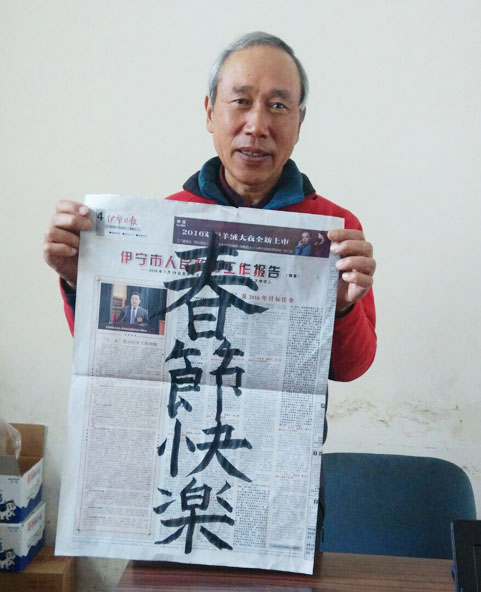

By Abe Osamu (Abu Xiu)
Senior researcher, Snow and Ice Research Center, National Research Institute for Earth Science and Disaster Resilience
It was a tremendous honour for me to be invited by Chinese Academy of Sciences (CAS) as a visiting fellow for the President’s International Fellowship Initiative in 2016. I’ve visited Xinjiang Uygur Autonomous Region twice. The purpose of the first visit was to observe snowfalls and avalanches in the mountains in wintertime, when the lowest temperature was about −25˚C. The purpose of the second visit was to analyze data in the city of Urumqi during summer, when the highest temperature was about 35˚C. So, I have experienced both temperature extremes there.

Now, no one ever forgets their first trip abroad and mine was no exception when I made my first trip to China in 1994 as the only Japanese researcher among a Jeep-full of Chinese colleagues travelling from Urumqi to Guozigou in the Tianshan Mountains. The road was one of three main routes of the Silk Road in Xinjiang, north of the Tianshan Mountains. I consider the Tianshan Mountains to be one of the greatest mountain ranges on the planet, along with the Swiss Alps and the US’s Rocky Mountains. Because of poor conditions, we were forced to stay one night in Jinghe, between Urumqi and Guozigou. But, these days, we can drive the 700-km directly through Guozigou to Yili in a day. The winter of 1996, we stayed at CAS’s Tianshan Station for Snow and Avalanche Research at the Xinjiang Institute of Geography (now the Xinjiang Institute of Ecology and Geography) for several days for an artificial avalanche experiment. At that time, the only way to communicate with the headquarters in Urumqi was by long-wave radio and a sudden message arrived, informing us that a colleague's father in Japan had died. However, because of limited communications, there was no way we could arrange a return ticket for him immediately. But, we were able to successfully complete the avalanche experiment.
In the winter of 2016, however, I stayed at the same station for one month and this time, I was able to stay in contact with my family by e-mail via Wi-Fi.
People generally like unique experiences and Xinjiang offers a wide range of geographic features, from arid deserts to lush forests, and has many famous sightseeing spots. This summer, one PhD candidate invited me to go trekking on Nanshan, a wonderful place covered with an amazing array of flowers and I felt the younger generation tends to avoid littering along the trails. Nonetheless, even if littering is being discouraged, someone still needs to pick up the occasional litter to keep such areas pristine.
When I was in Xinjiang about 20 years ago, I didn’t meet many graduate students, but these days many Chinese students want to pursue a higher education and get MA or PhD. In Japan, our national institutes do not typically have any graduate students, so I was quite surprised to find that the Xinjiang Institute of Ecology and Geography had so many graduate students. In addition, about 70 percent of those students were female and some were married or even pregnant. In 2015, Prof. Tu Youyou was the first Chinese female to receive a Nobel Prize in Physiology or Medicine, and the tendency for females to excel in the field is expected to continue in the near future.
In conclusion, I’d like to discuss two incidents that occurred in Urumqi in 2016. In one, I found myself lost in a large supermarket so I asked a young female clerk in English if she could point me in the direction of the cashier. Although she appeared surprised by my English question, she responded immediately. I was also shocked the younger generation in China can speak English surprisingly well. I’m not sure that I would get the same response under similar circumstances in Japan. The other time, I entered a small Halal restaurant to have lunch and a young man was teaching something to his son. Then he turned to preparing my meal, and after that continued his teaching. The way in which many parents view education and attempt to provide it for their children impressed me greatly because I believe that our field, science, depends on education.